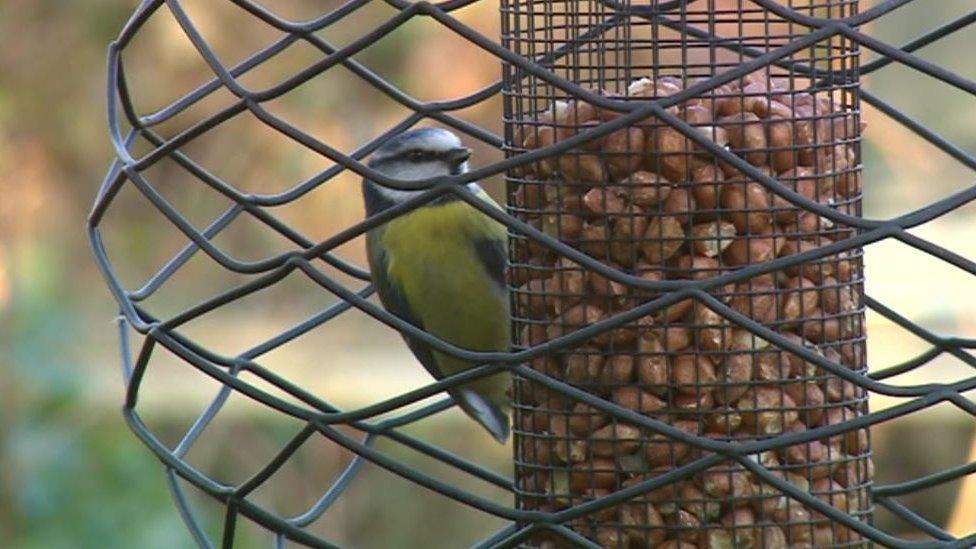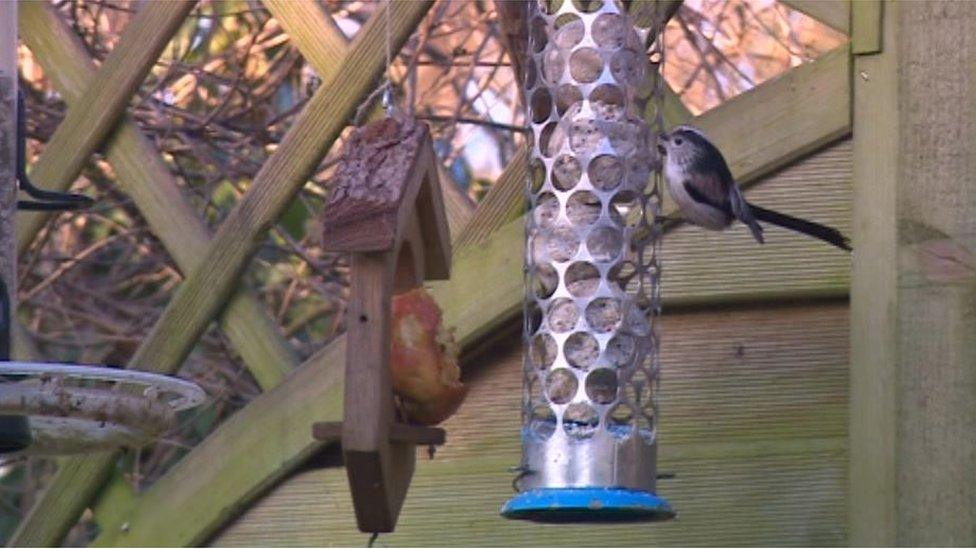Top tips for making the most of big garden birdwatch
- Published

Blue tits are the second most common birds in the West Midlands, according to an RSPB survey
The RSPB's Big Garden Birdwatch, external has established itself as one of our most successful citizen science experiments.
A great way to learn more about nature and enjoy the birds in your garden while providing plenty of information on how our wildlife is doing.
This year, it stretches over three days, from Saturday, 27 January to Monday, 29, giving people a chance to count at home and at work. Because the location of your count can make a huge difference to the birds.
I went to chat with Kate MacRae in her garden near Lichfield for some top tips on attracting plenty of birds for this weekend's big event. Kate's a familiar face to Springwatch fans and she's seen over 50 bird species in her garden with many of them making an appearance on her numerous webcameras broadcasting online.
Variety of nibbles
Kate says the secret to plenty of birds is not just to offer them lots of food but also to offer a variety of nibbles and to serve it up in plenty of different ways.

Kate MacRae live streams birds in her garden through her website
So in Kate's garden you'll find traditional tables, hanging fat balls and even pieces of fruit stuck on a skewer. Where you put your food is important too, so don't forget plenty of birds like a nearby branch or similar to perch where they can check the coast is clear before moving on to eating.
As I said location makes a huge difference to the birds you see so in Kate's rural garden you're less likely to see sparrows in contrast to my central Birmingham green patch where they're pretty common.
Thanks to a nearby canal I'm also more likely to see wagtails. Kate on the other hand gets a lot more finches of all descriptions than I do. In central Brum I also have the edge when it comes to gull species.
Top Five
Last year the Midlands top five were:
house sparrow
blue tit
starling
blackbird
woodpigeon

Long-tailed tits are a new arrival in last year's garden bird watch top ten
The long-tailed tit was a new entry at number ten.
While talking to Kate a small flock of long-tailed tits descended on her feeders. They are one of my favourite garden birds so hopefully this year we might see them clamber further up the rankings. Their numbers boosted in some part by the growing numbers of people who enjoy putting food out for them.
That said bird food can quickly become fairly expensive if you start to buy a lot of it and it is really tempting to go for the cheapest option.
Kate's advice though is to always try and spend a little bit more. She's found the cheaper bird food mixes contain a lot of wheat to bulk things out and it's really only the pigeons that care for that.
And as anyone who feeds the birds will tell you when the pigeons turn up they tend to scoff all the food before any other birds get a look in.
If you want to take part in this year's garden birdwatch you can find the details on the RSPB website, external.